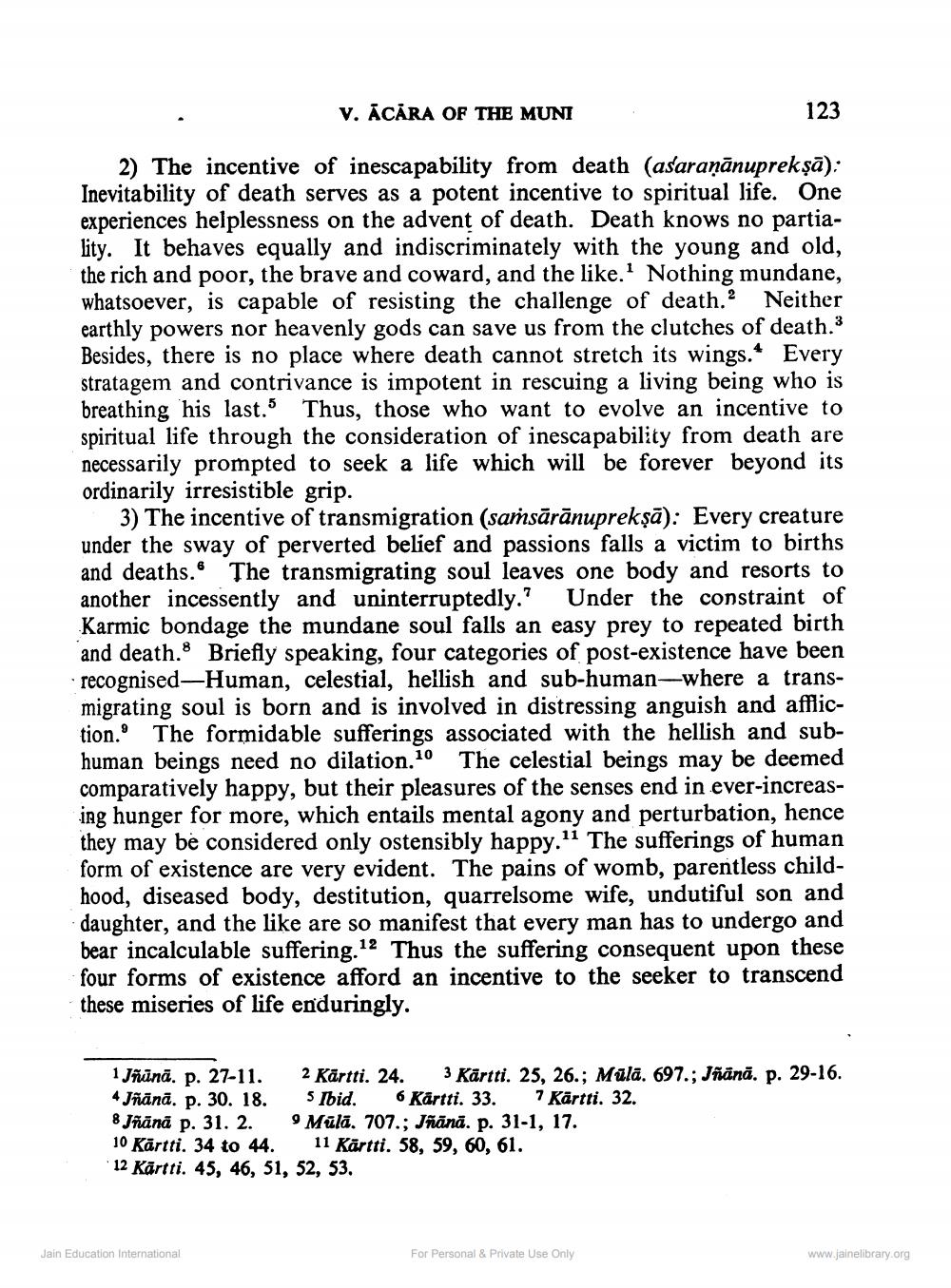________________
V. ACARA OF THE MUNI
123
2) The incentive of inescapability from death (asaraṇānuprekşā): Inevitability of death serves as a potent incentive to spiritual life. One experiences helplessness on the advent of death. Death knows no partiality. It behaves equally and indiscriminately with the young and old, the rich and poor, the brave and coward, and the like. Nothing mundane, whatsoever, is capable of resisting the challenge of death. Neither earthly powers nor heavenly gods can save us from the clutches of death.3 Besides, there is no place where death cannot stretch its wings. Every stratagem and contrivance is impotent in rescuing a living being who is breathing his last. Thus, those who want to evolve an incentive to spiritual life through the consideration of inescapability from death are necessarily prompted to seek a life which will be forever beyond its ordinarily irresistible grip.
3) The incentive of transmigration (samsārānuprekşā): Every creature under the sway of perverted belief and passions falls a victim to births and deaths. The transmigrating soul leaves one body and resorts to another incessently and uninterruptedly.? Under the constraint of Karmic bondage the mundane soul falls an easy prey to repeated birth and death.8 Briefly speaking, four categories of post-existence have been recognised-Human, celestial, hellish and sub-human-where a transmigrating soul is born and is involved in distressing anguish and affliction. The formidable sufferings associated with the hellish and subhuman beings need no dilation.10 The celestial beings may be deemed comparatively happy, but their pleasures of the senses end in ever-increasing hunger for more, which entails mental agony and perturbation, hence they may be considered only ostensibly happy.11 The sufferings of human form of existence are very evident. The pains of womb, parentless childhood, diseased body, destitution, quarrelsome wife, undutiful son and daughter, and the like are so manifest that every man has to undergo and bear incalculable suffering. 12 Thus the suffering consequent upon these four forms of existence afford an incentive to the seeker to transcend these miseries of life enduringly.
1 Jñünā. p. 27-11. 2 Kārtti. 24. 3 Kārtti. 25, 26.; Müla. 697., Jñanā. p. 29-16. 4 Jñānā. p. 30. 18. 5 Ibid. 6 Kartti. 33. 7 Kärtti. 32. 8 Jñānā p. 31. 2. Mülā. 707.; Jñānā. p. 31-1, 17. 10 Kärtti. 34 to 44. 11 Kärtti. 58, 59, 60, 61. 12 Kärtti. 45, 46, 51, 52, 53.
Jain Education International
For Personal & Private Use Only
www.jainelibrary.org




